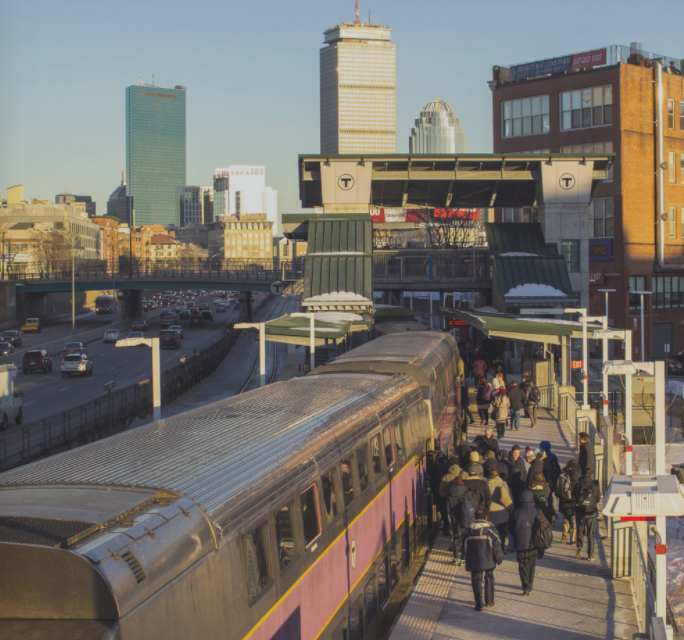Link to a recording of the event.
This talk is part of the TransitCenter’s “Transit and COVID-19: The Online Event Series”
Commuter rail has historically been designed for one type of rider: the suburban, white-collar worker who commutes to a 9-5 job downtown. These rail networks pass through city neighborhoods, but schedules are not set up to serve the all-day transit needs of city residents, and fares are prohibitively high for lower-income riders.
The COVID-19 crisis has only heightened the need to change the commuter rail paradigm. Commuter rail ridership has fallen more than bus and subway ridership, and it’s likely that 9-5 office workers will be the slowest to return to transit. Meanwhile, workers in cities and suburbs need affordable transit to jobs that don’t keep office hours. Commuter rail networks can serve many of these riders, relieve crowding on subways and buses, and further transit equity. But to do so, the service must be priced affordably and run frequently all day.
In Boston, the advocacy group TransitMatters has successfully persuaded the MBTA to pursue more equitable commuter rail service. The group published a report in 2018 that outlined a vision for frequent, affordable, all-day regional rail. The following year, the MBTA Board approved a plan to fund and implement some of TransitMatters’ recommendations.
Join TransitCenter, Jarred Johnson (Chief Operating Officer at TransitMatters), and Dr. Tracy A. Corley (Transit-Oriented Development Fellow at MassINC) for a conversation about the TransitMatters’ campaign and the importance of reorienting commuter rail to work for people who’ve been excluded from this type of service for too long.
Please note: This is a webinar on Zoom. For security purposes, only registered Zoom users will be able to RSVP.
This event will be closed-captioned.
